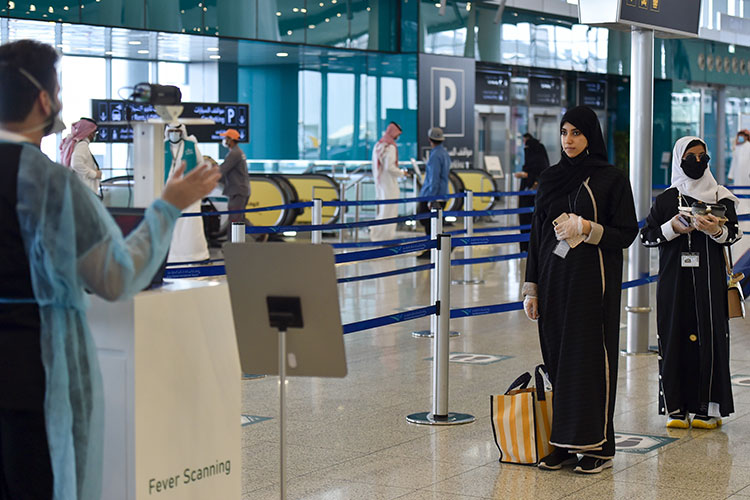
Saudi Arabia on Tuesday suspended entry to the kingdom from 20 countries, with the exception of diplomats, Saudi citizens, medical practitioners and their families, to help curb the spread of the coronavirus, the state news agency reported.
The Saudi Ministry of Interior indicated that this ban will come into effect from 9 pm on Wednesday.
The temporary ban, effective from Feb.3, includes people arriving from the United Arab Emirates, Germany, the United States, Britain, South Africa, France, Egypt, Lebanon, India and Pakistan.
The full list of countries:
1. Argentina
2. United Arab Emirates
3. Germany
4. United States of America
5. Indonesia
6. Ireland
7. Italy
8. Pakistan
9. Brazil
10. Portugal
11. United Kingdom
12. Turkey
13. South Africa
14. Sweden
15. Switzerland
16. France
17. Lebanon
18. Egypt
19. India
20. Japan
The Ministry of Interior stated that due to the continuing outbreak of the new Coronavirus pandemic, Health authorities recommended preventive and precautionary measures in the Kingdom of Saudi Arabia.
This also includes those coming from other countries and have passed through any of the countries listed in the travel ban must seek permission from the kingdom 14 days in advance.
The entry of citizens, diplomats, health authorities and their families coming from the aforementioned countries or those who passed through them in any of those countries will also have to seek permission.

On the other hand, the UK variant of the coronavirus has developed a new concerning mutation in a small number of cases, which scientists said makes it similar to the South African and Brazilian variants and could reduce the efficacy of vaccines.
The emergence of the mutation to the variant first discovered in Britain highlights how complicated exiting COVID-19 lockdown would be even once vaccines are rolled out.
Public Health England said there had been 11 reports of the UK variant, which feature the E484K mutation, mostly in south-west England.
The E484K mutation, which occurs on the spike protein of the virus, is the same change as has been seen in the South African and Brazilian variants that have caused international concern.












